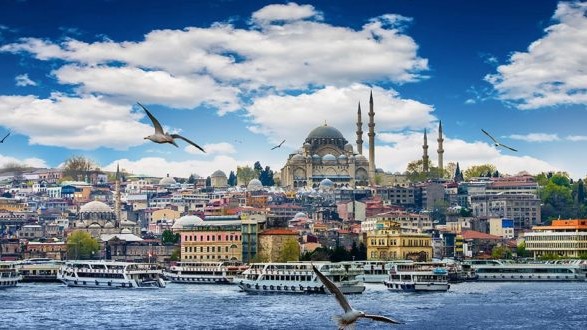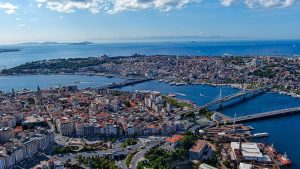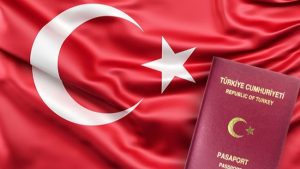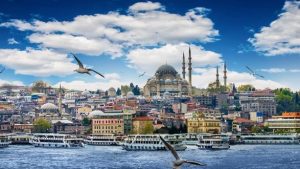Turkey is one of the preferred destinations for real estate investment for foreigners, thanks to its strategic location, diverse economy, and competitive property prices compared to many European countries. With the increasing number of foreigners looking to buy properties in Turkey, the Turkish government has imposed some restrictions on foreign ownership in certain regions for security, strategic, environmental, and military reasons.
In this article, we will explore the restricted areas for foreigners to live in Turkey, highlight the reasons behind these restrictions, and discuss how to navigate these limitations when considering buying property in Turkey.
Why Are Restrictions Imposed on Certain Areas in Turkey?
Turkey has a long and complex history in terms of national security, especially with its borders shared with countries in volatile regions like Syria and Iraq. Therefore, imposing restrictions on foreign property ownership in certain areas is considered a preventive measure to protect national security and the strategic interests of the country. Additionally, there are environmental and economic considerations that contribute to the imposition of restrictions in some areas. Below are some of the main reasons explaining these restrictions:
- National Security: Some areas near the Turkish borders or regions with sensitive military activities may impose restrictions on property ownership. These areas are of strategic importance for maintaining national security.
- Military Zones: Turkey has several military bases and regions focused on national defense, including sites used by the armed forces. The Turkish government usually imposes restrictions on foreign property ownership in these areas to ensure the safety of military operations.
- Economic Considerations: In some areas of Turkey containing important natural resources such as oil or minerals, the government may decide to impose restrictions on foreign ownership to maintain the stability of these resources and enhance local control over these assets.
- Natural Reserves: Some regions in Turkey are designated as natural reserves or feature rare ecological diversity. Therefore, property ownership in these areas could result in environmental damage or threaten the ecosystem. As a result, ownership is restricted in these areas to protect biodiversity and natural resources.
Restricted Areas for Foreign Residents in Turkey
There are several areas where the Turkish government imposes restrictions on foreign property ownership. These areas are often near borders, military zones, or regions of strategic or economic importance. Below are some of the most prominent restricted or regulated areas:
1. Border Regions with Neighboring Countries
The areas close to the Turkish borders with neighboring countries such as Syria, Iraq, and Iran are among the most restricted for foreign ownership. The volatile security situation in some of these areas leads to restrictions designed to protect national security and maintain stability in these sensitive regions. For instance, in border areas with Syria, the Turkish government imposes stringent restrictions on land or property purchases.
2. Military Zones
Turkish military bases and any sites containing defense equipment or military infrastructure are strictly prohibited for foreign ownership. Property ownership in these zones is not allowed to protect military security. It is essential for foreign investors to be aware that the property they are interested in purchasing may fall within a military zone.
3. Strategically Important Areas
Turkey has several cities and regions with vital infrastructure and strategic resources. These areas are sometimes restricted or regulated for foreign ownership. This includes areas with large factories or sites considered strategic for economic or political security.
4. Environmental and Nature Reserves
Turkey boasts remarkable ecological diversity, including many natural reserves and national parks that are home to rare species. Some of these areas are legally protected, and as a result, foreigners are prohibited from buying property in these regions. The purpose of these restrictions is to preserve biodiversity and safeguard the natural environment from potential damage caused by urban expansion.
How to Navigate These Restrictions?
Despite the restrictions on foreign property ownership in some areas of Turkey, there are several ways foreign investors can avoid these restricted zones or deal with the imposed limitations:
- Specialized Legal Consultation: It is essential for anyone interested in buying property in Turkey to consult with a specialized lawyer or a trusted real estate agency. These lawyers and agencies have comprehensive knowledge of Turkish laws and property ownership restrictions, helping avoid any prohibited areas.
- Research and Verify the Location: Foreign investors should verify that the property they wish to purchase is in a non-restricted area. Investors can do this by visiting the area or making inquiries with local real estate agencies or Turkish authorities.
- Special Requests: In some cases, it may be possible to obtain exceptions to purchase property in restricted areas. However, this process requires many formalities and official approvals.
- Buying Property in Safe Areas: If you wish to avoid any issues related to restrictions, you can choose to buy property in major cities such as Istanbul, Ankara, or Izmir, where the restrictions are less stringent.
Conclusion
Turkey remains an attractive investment destination for foreigners looking to purchase property, but it is essential for investors to be aware of the restrictions imposed on ownership in some regions. These restrictions are aimed at preserving national security, the environment, and natural resources. To avoid legal issues, it is recommended to seek specialized legal advice and follow the proper legal procedures.
If you are considering real estate investment in Turkey, it is crucial to be aware of the restricted areas and ensure that the property you choose is located in an area where foreign ownership is permitted.







